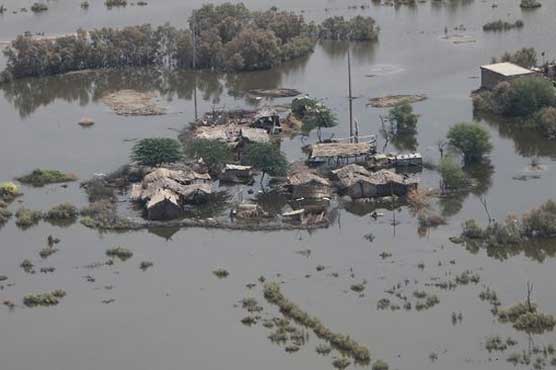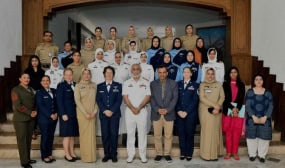By- Syeda Mariam Mustajab
Since the start of mankind, humans have been involved in mass exploitation of natural resources. WWF recently produced a report titled The Living Planet Report which highlighted that biodiversity has reduced. The report also highlights that our dependence on natural resources is equivalent to more than 1.5 earths which means that in coming years our dependence on natural resources will further increase but the question is from where we will get these resources as there’s no other planet to support life.
Due to these reasons conservation of natural resources is important and experts urge to vow for sustainable development so that humans can live in harmony with nature. The Living Planet Report also highlighted that water covers most of the surface area of earth. Around 97.5 per cent of our planet’s water is salt water, whereas most of the remaining fresh water exists in the form of glaciers, ice caps or underground water aquifers.
Unfortunately the planet faces the greatest of all threats in the form of climate change and global warming which are not just warming the earth but also affecting livelihoods and lives of the people. Intensity and frequency of extreme weathering events has also increased which is a concern for many. Pakistan is among the worst victims of climate change as experts regard annual floods as a result of it. The ongoing floods are more due to climate change rather than mismanagement because unpredicted and increased rainfalls flood our plains, devastate crops and affect lives of millions of people.
The Chitral floods are also the result of climate change as increased glacial melt and rainfalls have increased considerably thus affecting thousands of lives. Meanwhile the Southern Punjab is badly affected due to current floods and its now passing through Sindh. Climate change, global warming, deforestation and pollution are all man-made and humans can only solve them. Massive deforestation and pollution are increasing Greenhouse Gas Emissions (GHG’s) manifold thus changing the course of history.
Unfortunately climate change impacts are most affecting developing countries and small islands however their carbon emissions are all time low. Yes its true that emissions of developed countries are creating problems for under-developed and developing countries, therefore rich states should support climate affected countries so that adaptation and mitigation can be boosted.
Recently, a German think-tank, the German Watch Institute has ranked Pakistan among the top ten countries most affected by climate change which should ring alarm bells in power corridors. This is evident as loss of billions of dollars is witnessed due to floods. The 2012 flood caused the government loss of six billion dollars in the form of damage to property, lives and livelihoods. Deforestation soured the issue as it led to flash floods and increased soil erosion.
Pakistan is even witnessing rise in sea level upto 1.1 mm every year which clearly shows that our coastal communities will be flooded if concrete measures on war-footing grounds are not taken. Rise in average annual temperature is also recorded upto 0.120C which is affecting the flora and fauna of Pakistan.
These issues may seem to be environmental but they are affecting lives, businesses and economy, therefore it has many socio-economic impacts. Therefore we should become responsible citizens by taking steps to improve forest cover, discouraging fossil fuels and spending in renewable energy so that climate change impacts can be mitigated.
World Wide Fund for Nature-Pakistan (WWF-Pakistan), a leading conservation organization in Pakistan is adapting and mitigating the impacts of climate change by urging citizens to reduce carbon emissions and improving forest cover in the most vulnerable areas so that impacts of flooding can be reduced. WWF-Pakistan through its Indus for All Programme (IFAP) in order to stop sea level rise and make the coastal areas mitigate climate change impacts planted 7,500 hectares mangroves in coastal areas in Sindh and another 550 hectares through its project Building Capacity on Climate Change in Coastal Areas of Pakistan (CCAP). These initiatives have helped mitigate climate change in coastal areas, however much needs to be done as only Rs. 30 million are allocated for Climate Change Ministry in 2015-16 budget which is not sufficient to mitigate climate change.
It’s tragic to know that we are facing loss of billions of dollars each year due to natural calamities but still the government departments are not an effective job to protect the livelihoods and lives of the people. National Disaster Management Authority (NDMA), Federal Flood Commission (FFC) and other departments should have taken precautionary measures before 2015 floods but nothing concrete was done. This has led to the devastation of Chitral and almost all the provinces of Pakistan. If we don’t take concrete steps a day will come when action will equal inaction. We should address environmental issues immediately and take care of environment.
The writer is a freelance journalist.














